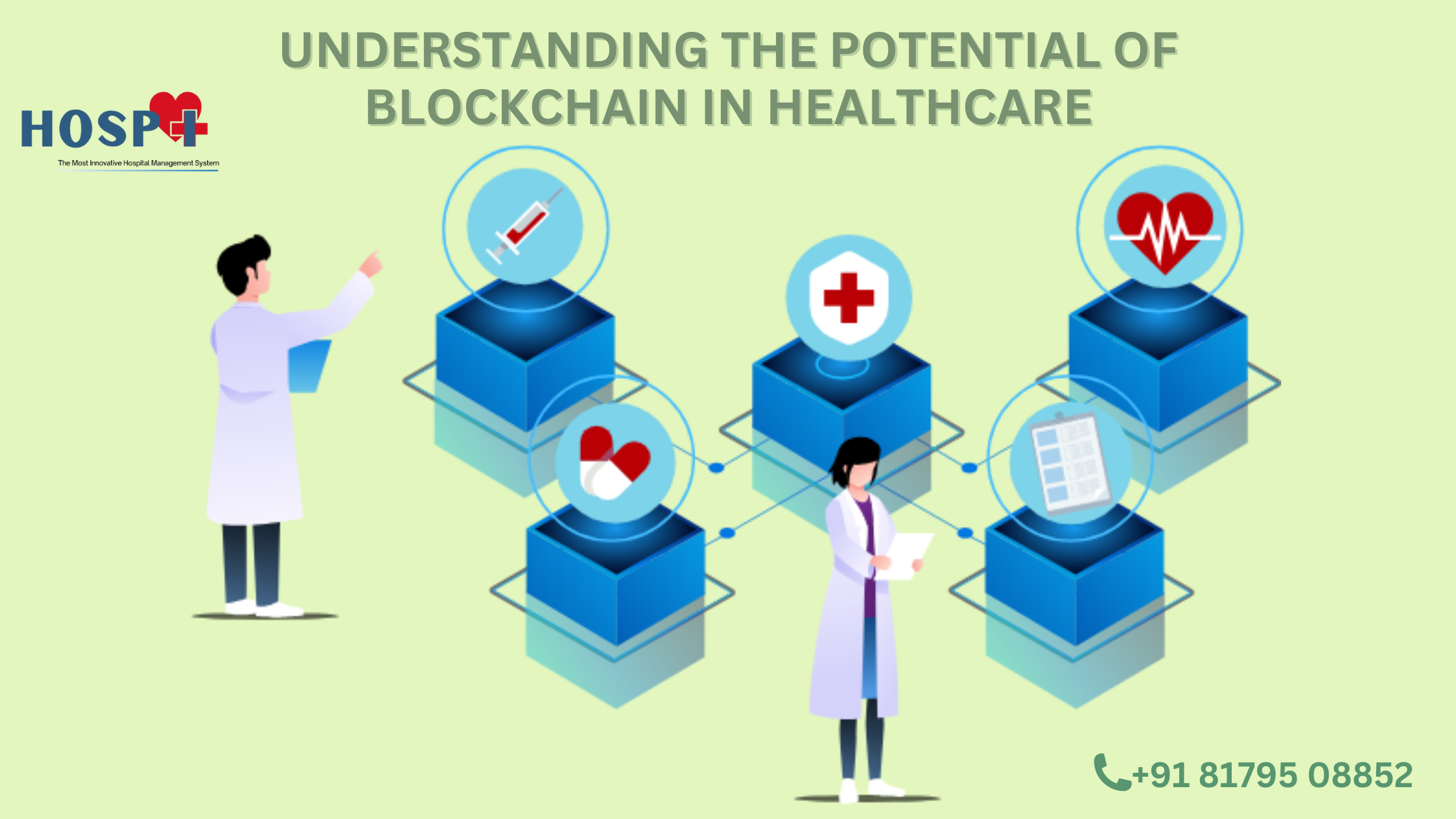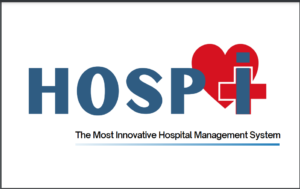Blockchain is a distributed ledger technology that could completely transform the medical field. By providing a secure and immutable way to store and share data, blockchain could help to improve patient care, reduce costs, and increase transparency. In this blog, we will understand the potential the of blockchain in healthcare.
Here are some of the potential benefits of blockchain in healthcare:
- Secure and immutable data storage: Blockchain is a tamper-proof way to store data, which could help to protect patient privacy and ensure the accuracy of medical records.
- Improved patient care: Blockchain could help to improve patient care by making it easier for healthcare providers to access and share patient data. This could lead to faster diagnoses, better treatment plans, and improved outcomes.
- Reduced costs: Blockchain could help to reduce costs in the healthcare industry by streamlining administrative processes and reducing the need for intermediaries.
- Increased transparency: Blockchain could increase transparency in the healthcare industry by making it easier for patients to track their medical records and see how their data is being used.
Here are some of the challenges of blockchain in healthcare:
- Lack of technical expertise: The healthcare industry is still in the early stages of adopting blockchain technology, and there is a lack of technical expertise among healthcare providers.
- Interoperability: Blockchain networks are not yet interoperable, which means that data cannot easily be shared between different networks.
- Regulation: The regulatory landscape for blockchain in healthcare is still evolving, which could slow down adoption.
The advantages of blockchain in healthcare are substantial, despite these obstacles. As the technology matures and the regulatory landscape evolves, we can expect to see more and more applications of blockchain in the healthcare industry.
Here are some specific examples of how blockchain is being used in healthcare today:
- Electronic health records (EHRs): Blockchain could be used to store and share EHRs in a secure and immutable way. This could help to improve patient care by making it easier for healthcare providers to access and share patient data.
- Clinical trials: Blockchain could be used to manage clinical trials in a more efficient and transparent way. This could help to reduce the time and cost of clinical trials, and it could also help to ensure the safety and integrity of trial data.
- Supply chain management: Blockchain could be used to track the movement of medical supplies and pharmaceuticals in a secure and transparent way. This could help to reduce counterfeiting and improve the safety of the healthcare supply chain.
- Payments: Blockchain could be used to facilitate payments between healthcare providers and payers in a secure and efficient way. This could help to reduce administrative costs and improve the speed of payments.
These are just a few examples of how blockchain technology is being used in the healthcare industry right now. As the technology matures, we can expect to see even more innovative applications of blockchain in the healthcare industry in the years to come.
Here are some of the key players in the blockchain healthcare space:
- IBM: IBM is one of the leading companies in the development of blockchain technology. IBM has a number of healthcare-related blockchain initiatives, including a project to develop a blockchain-based EHR system.
- Microsoft: Microsoft is another major player in the blockchain space. Microsoft has a number of blockchain healthcare initiatives, including a project to develop a blockchain-based platform for clinical trials.
- Gem Health: Gem Health is a blockchain-based healthcare company that is developing a platform for the exchange of medical data. Gem Health’s platform is designed to be secure, private, and interoperable.
- MediLedger: MediLedger is a blockchain-based consortium of healthcare organizations that is developing a platform for the exchange of medical data. MediLedger’s platform is designed to be secure, private, and interoperable.
The future of blockchain in healthcare is bright. As the technology matures and the regulatory landscape evolves, we can expect to see more and more applications of blockchain in the healthcare industry.
Blockchain has the potential to revolutionize the healthcare industry by improving patient care, reducing costs, and increasing transparency. The key players in the blockchain healthcare space are developing innovative solutions that have the potential to transform the way healthcare is delivered.
Blockchain for Electronic Health Records (EHRs)
One of the most promising applications of blockchain in healthcare is for electronic health records (EHRs). EHRs are a digital record of a patient’s health history, and they are used by healthcare providers to track patient care. However, EHRs are often fragmented and siloed, which can make it difficult for healthcare providers to access and share patient data.
Blockchain could be used to create a single, secure, and immutable record of a patient’s EHR. This would make it easier for healthcare providers to access and share patient data, which could lead to improved patient care.
Blockchain for Clinical Trials
Blockchain could also be used to improve the efficiency and transparency of clinical trials. Clinical trials are research studies that are conducted to test the safety and efficacy of new drugs and medical devices. However, clinical trials can be expensive and time-consuming, and they are often subject to fraud.
Blockchain could be used to track the progress of clinical trials in a secure and transparent way. This could help to reduce the time and cost of clinical trials, and it could also help to ensure the safety and integrity of trial data.
Blockchain for Supply Chain Management
Blockchain could also be used to improve the safety of the healthcare supply chain. The healthcare supply chain is the network of organizations involved in the production, distribution, and use of healthcare products. However, the healthcare supply chain is vulnerable to counterfeiting and fraud.
Blockchain could be used to track the movement of medical supplies and pharmaceuticals in a secure and transparent way. This could help to reduce counterfeiting and improve the safety of the healthcare supply chain.
Blockchain for Payments
Blockchain could also be used to facilitate payments between healthcare providers and payers in a secure and efficient way. This could help to reduce administrative costs and improve the speed of payments.
Other Potential Applications of Blockchain in Healthcare
In addition to the applications mentioned above, blockchain has the potential to be used in a variety of other ways in healthcare. Blockchain could be used, for instance, to:
- Track the progress of patients with chronic diseases.
- Manage the distribution of blood and organs.
- Provide secure access to medical records for patients.
- Permit patients to give researchers access to their medical information.
- Create a marketplace for medical devices and services.
The potential applications of blockchain in healthcare are vast. As the technology matures, we can expect to see even more innovative ways to use blockchain to improve the healthcare system.
Conclusion
Blockchain is a promising new technology that has the potential to revolutionize the healthcare industry. By providing a secure and immutable way to store and share data, blockchain could help to improve patient care, reduce costs, and increase transparency.
The future of blockchain in healthcare is bright. As the technology matures and the regulatory landscape evolves, we can expect to see more and more applications of blockchain in the healthcare industry.
Blockchain has the potential to transform the way healthcare is delivered. It enhances patient care, reduces costs, and increases transparency by simplifying data access and sharing. Blockchain healthcare players are developing innovative solutions to improve patient lives and enhance patient experience.
I hope this article has given you a better understanding of the potential of blockchain in healthcare. Research companies and initiatives mentioned in this article for further information and insights.
To read some more articles like this, Visit this site: https://hospi.info/blog


